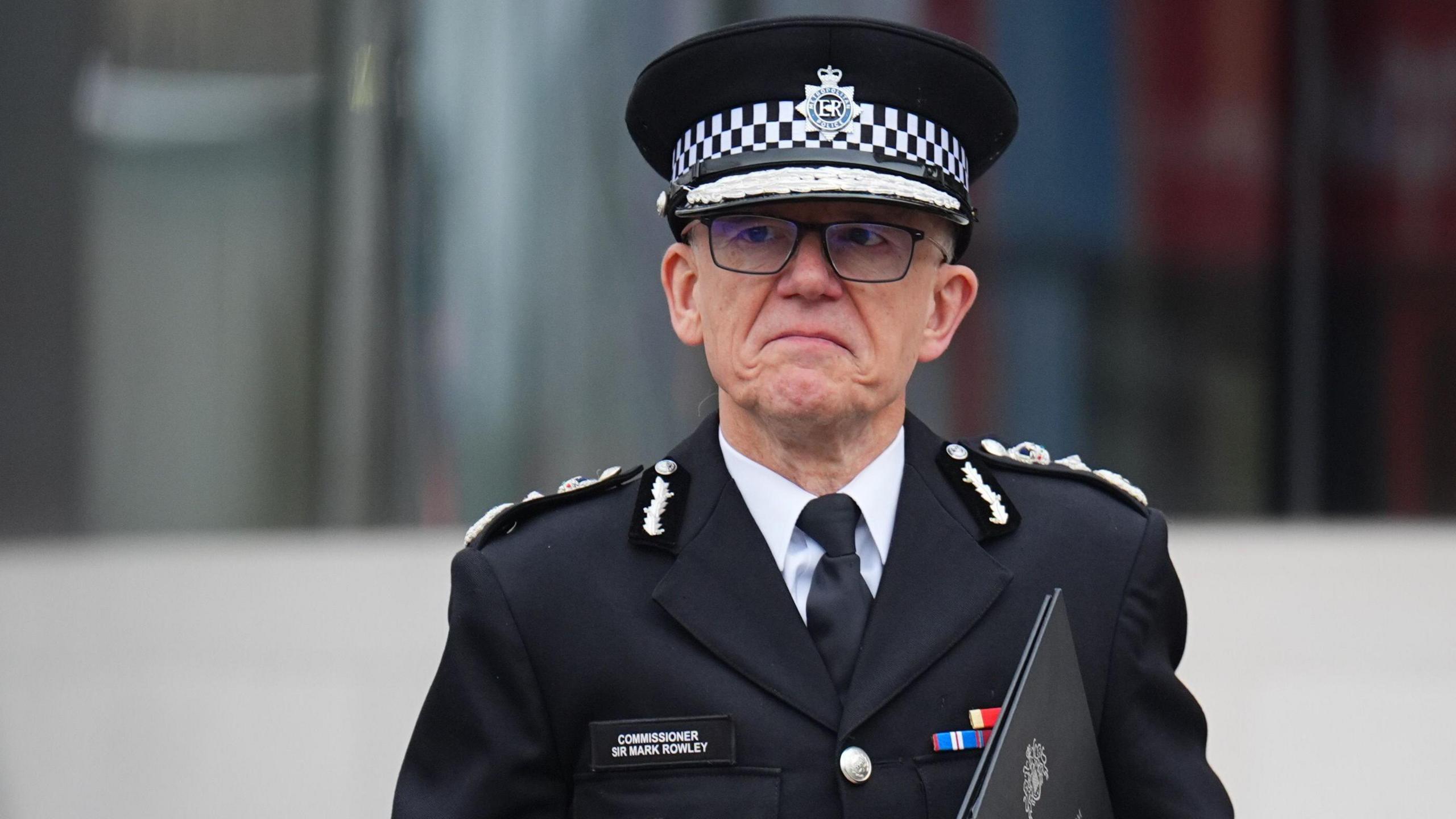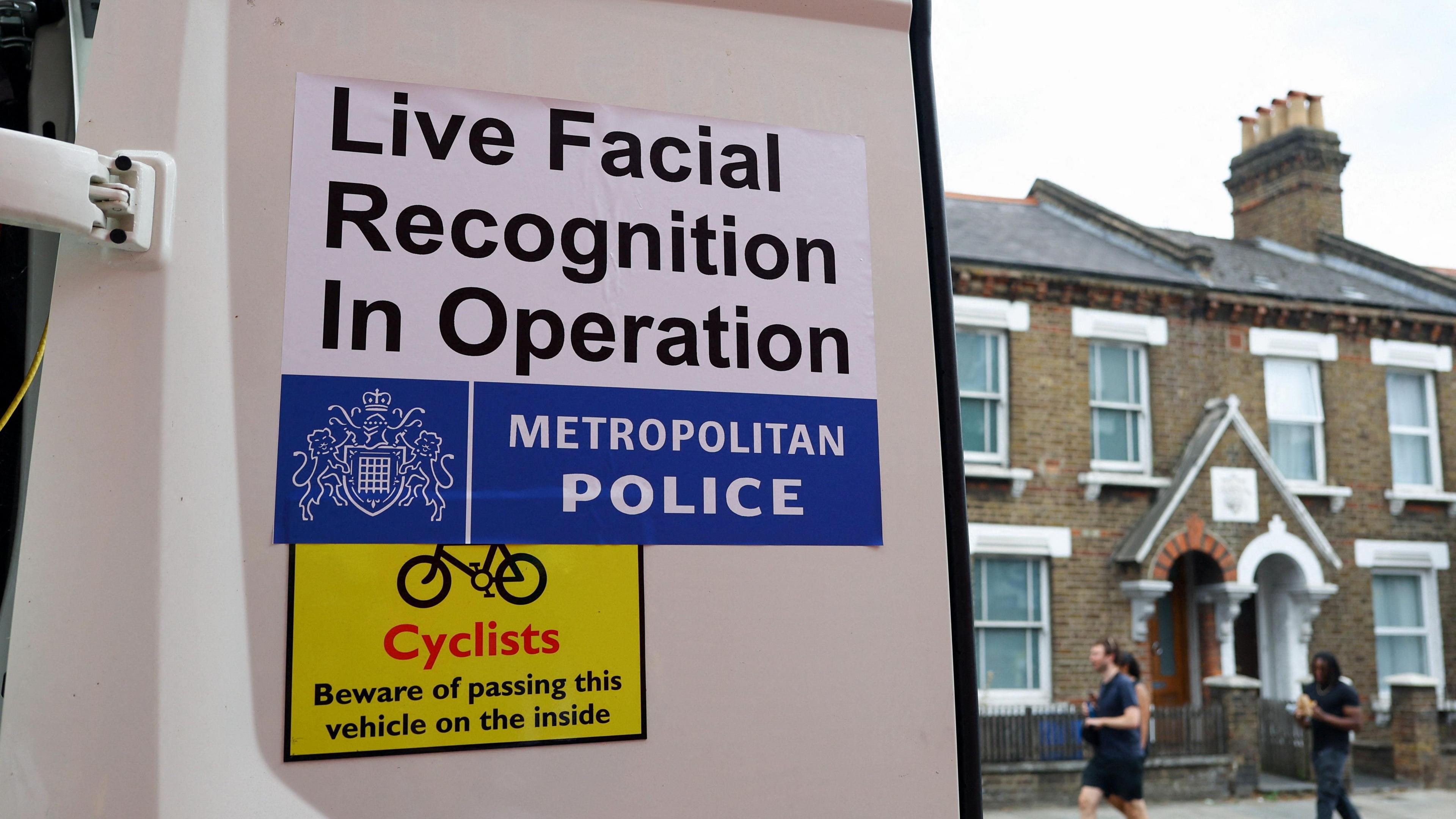More than 700 arrests from live facial recognition

Sir Mark Rowley said officers were "energised" by the potential of live facial recognition technology
- Published
Live facial recognition (LFR) is a "game-changing tool" that has led to more than 700 arrests so far this year, Metropolitan Police commissioner Sir Mark Rowley has said.
There were 50 registered sex offenders in breach of their conditions among those arrested, Sir Mark said.
He outlined how the force is using technology to help tackle crime, which includes plans to use drones alongside officers to support public safety.
The commissioner told TechUK that LFR was a "targeted" investment that supported frontline policing.
In his speech, Sir Mark said: "Over the Notting Hill Carnival weekend, I spent time with officers on an LFR operation. Every officer I spoke to was energised by the potential.
"Across the weekend, LFR delivered 61 arrests-including 16 for serious violence-related offences and 13 for violence against women and girls.
"The first arrest happened within five minutes of going live, locating someone wanted on a prison recall since 2015.
"Another suspect was wanted for GBH, having allegedly stabbed a victim five times with a machete.

Sir Mark said the technology was "enabling officers to protect the public in real time - and doing so more efficiently"
"These results show that LFR played a critical role in keeping the public safe at Carnival - making a major contribution to one of the safest in years, with robbery down 70%, violence down 53%, and sexual offences down 8% compared to 2024."
The announcement that LFR was to be deployed at the carnival sparked fears of racial bias and prompted 11 anti-racist and civil liberty organisations to call on Sir Mark to rethink the measure.
In a letter sent to the commissioner, the groups said the technology was a "mass surveillance tool that treats all carnival-goers as potential suspects" and had "no place at one of London's biggest cultural celebrations".
It also said that LFR technology was "less accurate for women and people of colour" in certain settings.
Sir Mark acknowledged concerns about bias in facial recognition technology, adding that the force had selected the algorithm it uses "with care" and knew how to use it in a non-discriminatory way.
Met urged to scrap Carnival facial recognition plan
- Published17 August
'Facial recognition tech mistook me for wanted man'
- Published6 August
He said that LFR was transforming "'hotspot policing' as officers stop and arrest far more criminals".
Londoners will also be told later this year about the force's plans to "pilot deploying drones alongside officers to support public safety".
Sir Mark said: "From searching for missing people, to arriving quickly at serious traffic incidents, or replacing the expensive and noisy helicopter at large public events.
"Done well, drones will be another tool to help officers make faster, more informed decisions on the ground."
Listen to the best of BBC Radio London on Sounds and follow BBC London on Facebook, external, X, external and Instagram, external. Send your story ideas to hello.bbclondon@bbc.co.uk, external